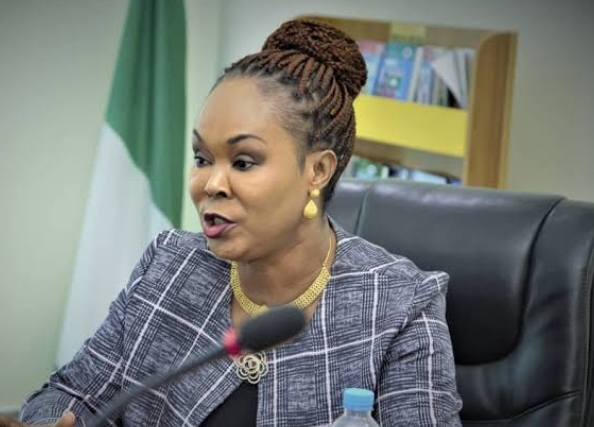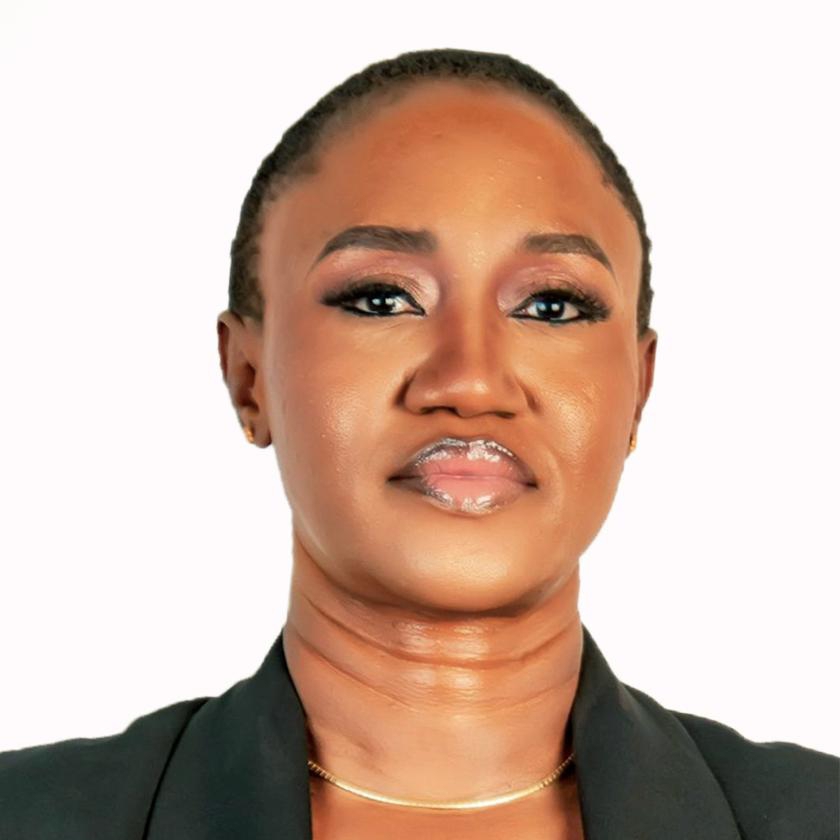#IWD2024: Open letter from Nguvu Change Leaders to Nigeria’s Women Affairs Minister

Dear Honourable Minister,
We wish you and everyone at the Federal Ministry of Women’s Affairs a happy International Women’s Day 2024. On this day, we celebrate the beautiful and resilient 108 million women across Nigeria for their invaluable contribution to the growth and development of the country.
This year’s Women’s Day theme is “Invest in women: Accelerate progress”, and it reminds us that by investing in women, we can spark change and speed the transition towards a healthier, safer, and more equal world for all. The famous quote by H.E Joyce Banda echos this, “the seeds of success in every nation on Earth are best planted in women and children.”
Across our Nguvu Collective community in Nigeria, women change leaders and their male allies have relentlessly driven campaigns to impact seeking investment across healthcare, education, and leadership development for women in Nigeria. Honourable Minister, we are writing to you to seek your support in the actualization of these campaign goals as part of your roadmap for women’s development in Nigeria.
Invest in Women’s Health & Wellbeing
Six Change Leaders, Margaret Aladeselu, Cariyat Yusuf, Anike-ade Funke Treasure, Aliyu Mary, Miriam Omede, and Kiki Mordi, are campaigning for the removal of taxes on menstrual products, the provision of sanitary pads for secondary school girls, and free sanitary pads at workplaces in Nigeria. Collectively their campaigns have amassed over 20,000 signatures, and this is in acknowledgement of the fact that the issue of menstrual hygiene affects the health of millions of women and girls across Nigeria. Following the current economic realities, we request that you recommend to the Federal Executive Council that customs duty be suspended on sanitary pads and other period products coming into the country to help support over 37 million women and girls in period poverty in Nigeria.
Saratu Kassim is campaigning to end the stigma around infertility in Nigeria and also seeking reforms to the National Health Insurance Scheme (NHIS) to cover fertility care for women across the country. Gbemisola Boyede’s campaign is asking for legislation that mandates six months of maternity leave for women in Nigeria by 2030, while Itoro Usoro has reached over 5,000 women with awareness of cervical cancer following the loss of his mother to the disease. He is also advocating for vaccines for girls in marginalised communities following the launch of the HPV vaccine in Nigeria last year.
With over 27,000 cases of violence against women and girls recorded in 6 states over three years in Nigeria, it has become urgent for the healthcare of survivors to be prioritised. Change Leader and Filmmaker Priye Diri is campaigning for medical bills of survivors of sexual and gender-based violence to be waived. This campaign was inspired by her interaction with survivors in the field when she found out that they suffer abuse and still have to find money to pay for the health bills to get tested or treated. Grace Eniola Akhigbe is taking a step further with her campaign. For women suffering abuse whose lives are at risk, Grace is asking for shelters to be built for such women to help them escape abusive homes and relationships. Joy Adigwe is asking for policies to protect from workplace sexual harassment as this is an obstacle to career growth for women in the workplace.
Single mothers often have to fend for their children alone as society tends to make excuses for fathers. Change Leader and Lawyer Nmuta Ngozi is working hard to change this through her campaign. She is using the Matrimonial Causes Act, the Child’s Rights Act, and the Constitution on Human Rights as a basis for her request for a law criminalising the lack of child support from fathers in Nigeria.
Invest in Women’s Education, Economic Empowerment, and Leadership Development
Honourable Minister, another sector we can invest in to uplift the lives of women and girls in Nigeria is Education. Adaobi Chuma-Okeke is leveraging her personal experience as a young woman who had to conquer stairs and narrow classroom doors with her wheelchair to get her Human Anatomy degree to advocate for young women and men who use a wheelchair to have access to classrooms.
Growing up, Queen Ugwoeru heard her mother complain about her inability to benefit from her father’s inheritance because of her gender. This is what inspired Queen to start a campaign to the House of Assembly in Imo State, her home state, asking them to enact the female right to property law just like Rivers and Abia did lately. Women cannot be economically empowered if they do not have the right to inherit like their male counterparts.
READ ALSO: World Health Day 2023: Open Letter from Nigerian Changeleaders to Osagie Ehanire
Amarachi Precious is seeking the conscious empowerment and support of female creatives starting from the university campuses to ensure that young women can confidently pursue a career in the creative industry after graduation.
Finally, Victoria Chukwuma and Abosede Alimi are committed to seeing a Nigeria where women can take their place in public leadership, not merely as ‘ceremonial women leaders’ but also as Governors, Senators, Ward Councilors, and even as the President. By engaging the Inter-Party Advisory Council (IPAC), the National Assembly, and other relevant stakeholders in civil society and government, Victoria and Abosede are boldly asking for affirmative action to be put from words into action.
Honourable Minister, these are just a few of the campaigns in our community that seek to improve the lives of women in Nigeria. We hope that as you work daily for the good of Nigerian women, you can take up some of these causes as part of your agenda for this year and the years to come.
Sincerely,
Nguvu Collective Change Leaders,
Abuja, Nigeria




